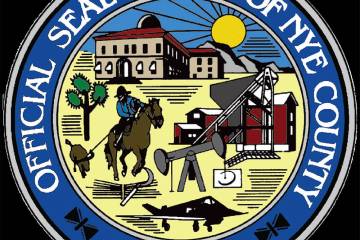Nevada Infant Immunization Week begins tomorrow
Vaccinating a child, especially when they’re young can help prevent diseases, not just in the child but others around them as well.
To raise awareness of the importance of immunizing young children, tomorrow through April 23 is Nevada Infant Immunization Week.
Nevadans will join with the rest of the country recognizing the importance of protecting infants from vaccine-preventable diseases and to celebrate the achievements of immunization programs in promoting healthy communities throughout the United States.
“Vaccines are among the most successful and cost-effective tools available for preventing disease and even death,” said Heidi Parker, executive director of Immunize Nevada. “Nevada Infant Immunization Week gives us the opportunity to remind parents of the importance of following the recommended vaccination schedule.”
The Centers for Disease Control said that vaccines not only protect vaccinated individuals, but they also help protect entire communities by preventing and reducing the spread of infectious diseases.
Among children born between 1994-2013, vaccination will prevent an estimated 322 million illnesses, 21 million hospitalizations, and 732,000 deaths over the course of their lifetimes, according to the CDC.
The Vaccines for Children program makes vaccines available to children who are underinsured or whose parents or guardians may not be able to afford them. The VFC program helps children get vaccinated according to the recommended immunization schedule and is responsible for a large increase in childhood immunization coverage levels. In turn, their efforts have helped the elimination of disparities in vaccination coverage among young children.
A recent example of how vaccines can help stop the spread of preventable disease is the increase of measles cases in the country.
The United States experienced a record 667 measles cases in 2014 that included 27 states. This is the largest number of cases since measles elimination was documented in the U.S. in 2000.
A report published in March’s Journal of the American Medical Association found that among the over 1,400 cases of measles since 2000, more than half of those cases had no history of vaccination.
“Vaccines have been successful, which means that many of us don’t really understand how serious the diseases are that they prevent,” Parker said. “But vaccine-preventable diseases still exist, as evidenced by last year’s measles outbreak. This makes it so important for all parents to educate themselves and to protect their children.”
This trend in parents not vaccinating their children began when Dr. Andrew Wakefield published a study linking vaccination to autism, which has since been debunked.
It was found that Wakefield changed the medical histories of the 12 patients whose cases made the basis of the 1998 study. Wakefield was stripped of his license in May of 2011 for his role in the falsified report.
Lynnette Bellin, director of strategic marketing and communications for Immunize Nevada, said that since the rise in parents not immunizing their children after the initial report, the trend has fallen significantly.
“We saw gaps in immunization rates starting in the early 2000s after the report put out by Dr. Andrew Wakefield was released,” Bellin said. “It has been disproved in so many studies and there has been so much science supporting the vaccines in the past 15 years, that we’re definitely seeing that trend reversed.”
The reverse has been steady in Nevada, as the state ranks 38th in the nation for children aged 19-35 months who are immunized, up from 48th in the nation in 2013.
An event that happened one state over at a popular theme park helped increase the number of parents who were initially shying away from having their children vaccinated.
“After the measles in Disneyland last year, Nevada actually saw a 23-percent increase in our measles vaccination,” Bellin said.
In order to protect babies before they are even born, the CDC recommends that pregnant women receive the whooping cough vaccine, or Tdap, during the third trimester of their pregnancy to help protect their babies until they can receive their first Dtap vaccine at 2 months of age.
“The reality is, these diseases can be especially serious for infants and young children,” Parker said. “The recommended immunization schedule protects infants and children by providing immunity early in life, before they are exposed to potentially life-threatening diseases.”
Every April for the last 20 years, communities all across the world celebrate the vital role vaccination plays in protecting the health of children, families and communities worldwide.
The U.S. celebrates Infant Immunization Week as part of World Immunization Week, an initiative of the World Health Organization.
Community Baby Bash Immunizations &Health Fair will be held from 9 a.m. to noon, on Saturday, April 16 at the Southern Nevada Health District’s main public health center, 280 S. Decatur at Meadows Lane. This free event will offer no-cost childhood immunizations for Vaccines for Children-eligible babies and toddlers.
Immunization services are offered in a variety of locations in Pahrump including community clinics, pharmacies, physicians’ offices and health districts. Rainbow Pediatrics on 2620 E. Acoma Ave.; Southwest Medical-Pahrump, 2210 E. Calvada Blvd.; Happyland Pediatrics, 1430 E Calvada Blvd., #600, are among the several locations where parents can get their children vaccinated.
Visit vfcnevada.org and use the zip code locator to find an immunization provider near you.
Immunize Nevada will be giving away water bottles, filled with infant immunization information, to moms who give birth at participating hospitals during Nevada Infant Immunization Week.
To thank maternity nurses for their role in keeping families healthy, Immunize Nevada will also be providing lunch to nurses at the hospitals mentioned earlier.
Giving babies the recommended immunizations by age 2 is the best way to protect them from many serious childhood diseases.
A complete vaccination schedule can be accessed at www.immunizenevada.org/kids. Parents are encouraged to check with their child’s doctor to ensure their baby is up-to-date on immunizations.

















